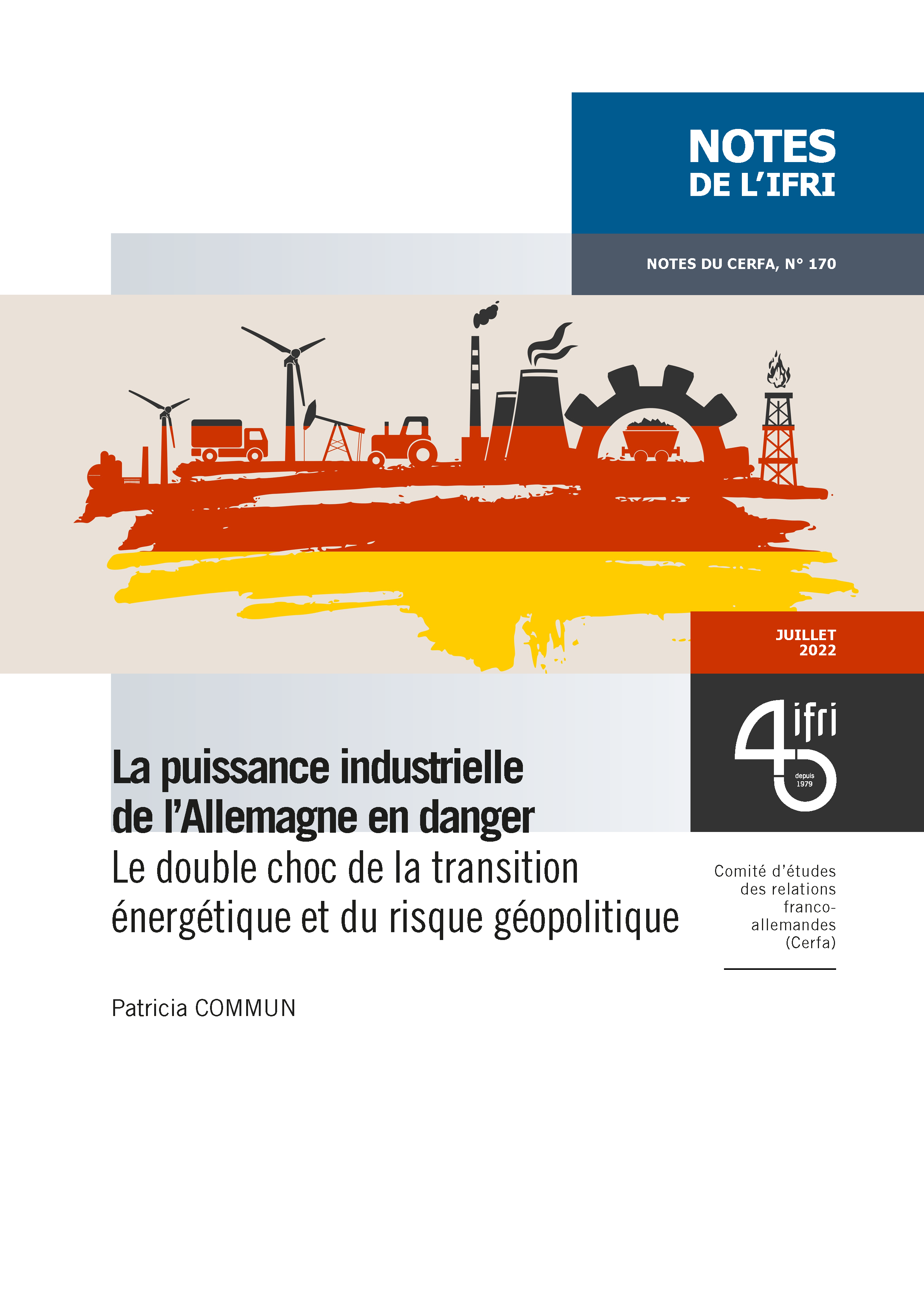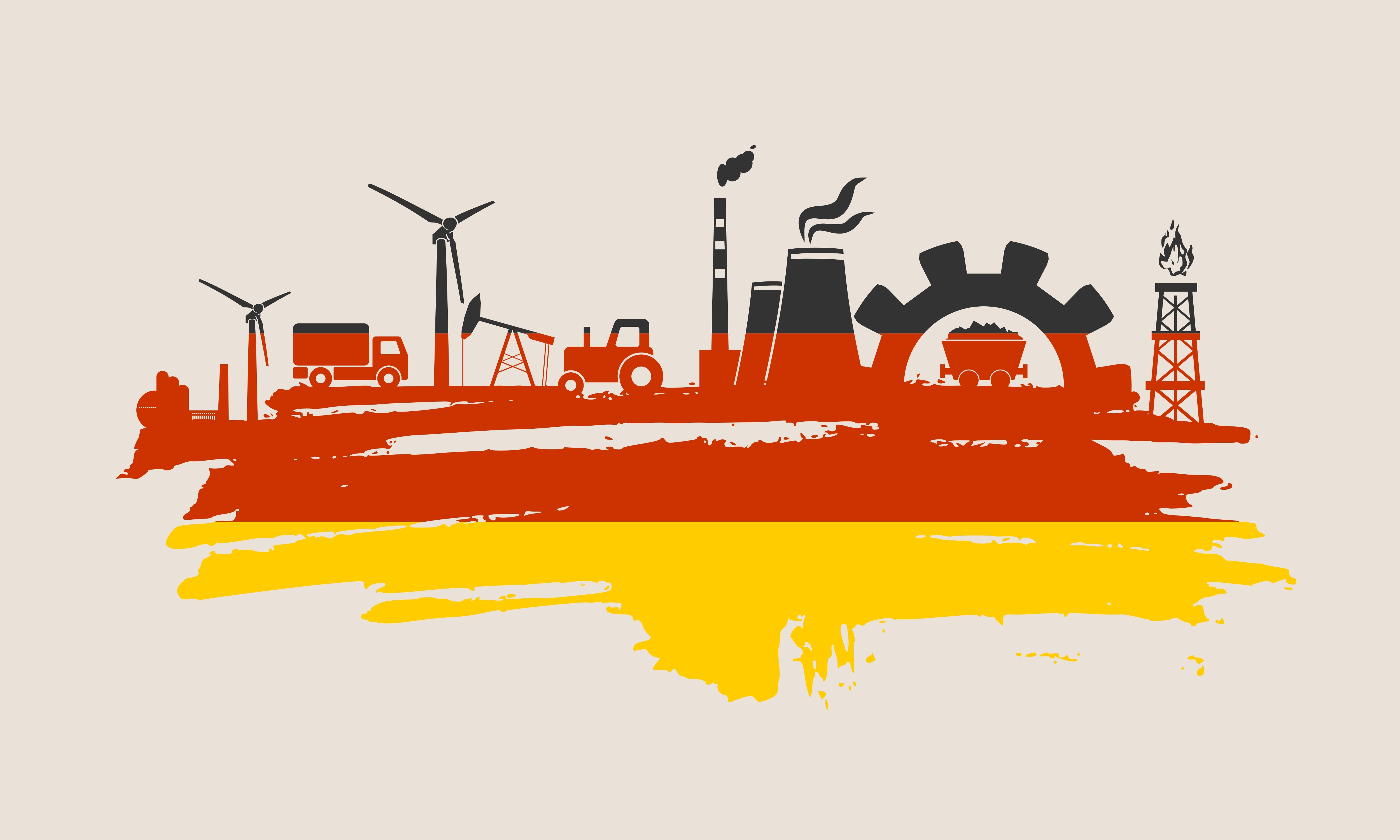The German Industrial Power in Danger: The Double Shock of Energy Transition and Geopolitical Risk

The German manufacturing industry at the heart of the German economic activity has been confronted in the past years with conjunctural shocks, which question its existence on the German territory: the energy transition which hinders it in the short term to resort to fossile energy from Germany and nuclear energy; a questioning of fossile energy imports from Russia which keeps production sites of fossile energy and nuclear energy in Germany; the currently small capacity of renewable energy to satisfy the important energy needs of the manufacturing industry and the putting into place of alternatives to the importation of energy resources.

If the European political pressure and geopolitical crisis with Russia were to perdure and / or grow, energy-intense industries could lead to partial or total closures of emblematic production sites and to the definitive departure from the German soil. The current coalition in Germany which united on a program of energy transition acceleration is brutally confronted with the challenge of an unprecedented industrial and geopolitical reality.
Patricia Commun is professor of German civilization at the University of Cergy-Pontoise, member of the AGORA laboratory, and Director of the Masters in Languages and International Trade UFR LEI.
This publication is available in French only: "La puissance industrielle de l'Allemagne" (PDF).




